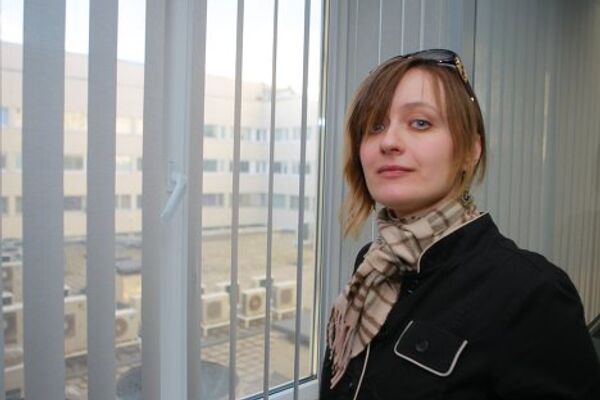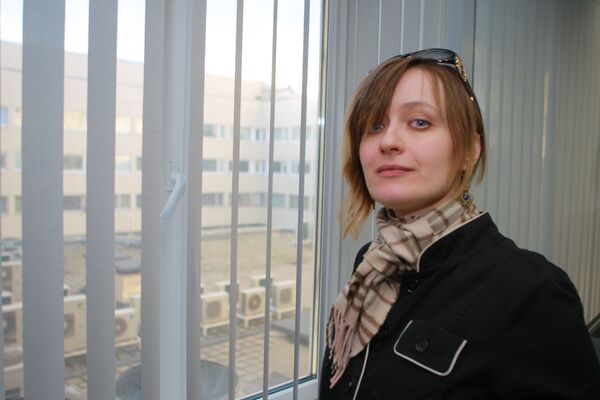Russian lawmaker Irina Yarovaya – who recently became famous for having a tony Moscow apartment registered to her daughter (as many powerful people around here do) – has proposed a new law that would see any critic of anti-Hitler forces jailed for up to three years (up to five years for members of the media).

Ostensibly a law that is meant to silence Nazi apologists, the proposed legislation is actually wading into dangerous territory. It has already incurred the wrath of Russian journalist and human rights defender Nikolai Svanidze, who told RIA Novosti this week that such a law would effectively “ban all research into WWII.”
Just think about it. Suppose you were doing research into your family tree, or whatever, and inadvertently discovered that your grandfather, a Soviet soldier, was accused of some atrocity while stationed in Germany. Would you blog about it if you stood a chance of being accused of attempting to rehabilitate Nazism?
It should go without mention that any criticism of Stalin’s actions during WWII could also land you in jail. And forget about voicing a critical opinion of, say, what happened in Hiroshima.
Yarovaya, who is frequently derided in the Russian media for demagoguery, has fiercely defended the proposed new legislation. On the surface, it does appear to make some sense. If Holocaust denial is illegal in Austria – why not in Russia?
Yet upon closer inspection, serious problems do indeed arise. Chief of them is the wording of the legislation, which would ban “the denial of the role and the service of [the armies of the anti-Hitler coalition] in supporting world peace.” This is a sweeping measure that could, indeed, see you jailed for criticizing your grandfather – or for even criticizing how any single mission was handled by any single serviceman. Historians might as well throw in the towel, as Svanidze has correctly surmised.
Forget about NGOs such as Memorial, which take a critical approach to the history of the Gulag. The new legislation would effectively wipe them off the map.
And what about the famous Russian debate as to who actually won WWII – Stalin or the people? I suppose such talks would have to be conducted in a hushed voice in someone’s kitchen, as opposed to out in public. Why, it would be like the Soviet Union all over again – only one where the politicians banning everything in sight would be riding around in imported cars.
The same would go for trying to analyze the catastrophic loss of life suffered by the Soviet Union during the war. Want to talk about it? Well how about a jail term to break your stride?
The other serious problem with the proposed law is how it would be generally applied. Russia’s lower house of parliament, the State Duma, in which Yarovaya is a lawmaker, has been cranking out new legislation at such a pace that one thinks there is a quota to be filled. There is very little time for debate, or, indeed, for a serious approach to the social ills that the laws are ostensibly meant to address. A conviction-happy judicial system makes everything that much worse.
Russia obviously has a problem with the rise of neo-Nazis and other groups that have a thing for Adolf Hitler and his ideas. Ham-fisted legislative measures dressed up in patriotic rhetoric are not going to take care of that problem any time soon.
In order to address the new radicalism adequately, society needs to have an open debate about why the radicals are wrong in the first place. And such a debate must include Stalin’s role – if society is ever going to get closure about it, that is.
As someone who comes from a family that still bears the scars of what happened to the Soviet people during WWII, I shudder to think about what my grandfather, who was no dissident but a faithful member of the armed forces, would think about this legislation. After all, what’s the point of remembering history when you’re not allowed to talk about it?
Trendwatching in Russia is an extreme sport: if you’re not dodging champagne corks at weddings, you’re busy avoiding getting trampled by spike heels on public transportation. Thankfully, due to an amazing combination of masochism and bravado, I will do it for you while you read all about it from the safety of your living room.
Natalia Antonova is the acting editor-in-chief of The Moscow News. She also works as a playwright – her work has been featured at the Lyubimovka Festival in Moscow and Gogolfest in Kiev, Ukraine. She was born in Ukraine, but spent most of her life in the United States. She graduated from Duke University, where she majored in English and Slavic Literature. Before coming to Moscow, she worked in Dubai, UAE and Amman, Jordan. Her writing has been featured in The Guardian, Foreign Policy, Russia Profile, AlterNet, et al.
Trendwatcher: The Spies Strike Back
Trendwatcher: Three Cheers for Divorce
Trendwatcher: Domestic Violence Finally on Russia’s Agenda
Trendwatcher: No Country for ICU Patients
Trendwatcher: Sasha Grey: Why Don’t We Do It in the (Russian) Road?
Trendwatcher: Going Postal, Pochta Rossii-Style
Trendwatcher: The An-2 plane: lost and found in the Urals
Trendwatcher: The Belgorod Massacre: ‘I Was Shooting at Hell’
Trendwatcher: Boston and Moscow: a tale of two police forces
Trendwatcher: Russia and United States Wage War of the Lists



